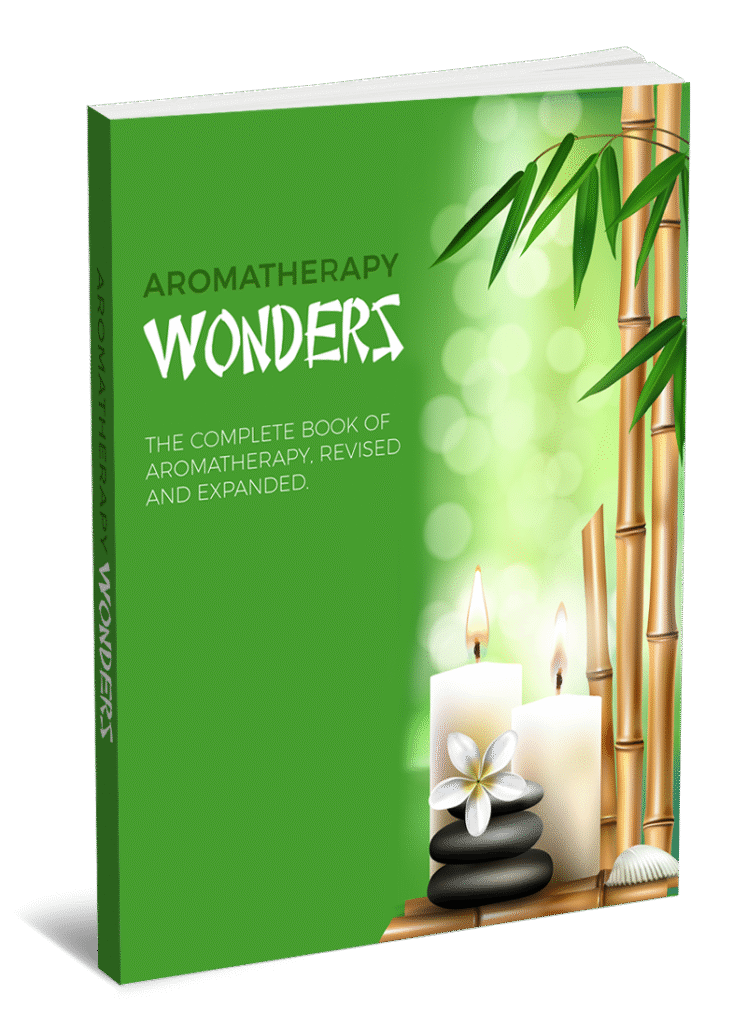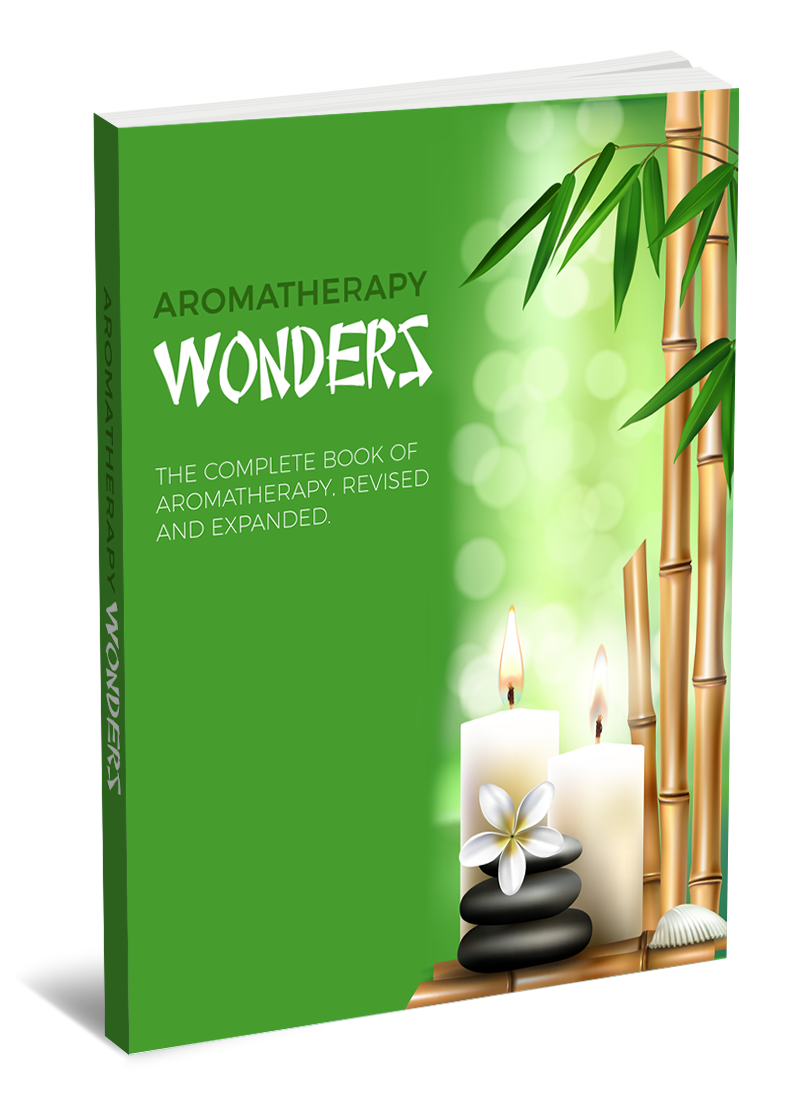Aromatherapy Wonders : Summary and Download EBook
“Aromatherapy Wonders.pdf” offers an introduction to aromatherapy, exploring its history, advantages, and various ways it can be used. The document points out that aromatherapy is a growing field and a popular complementary therapy found in places like clinics, spas, and beauty products. It defines aromatherapy as using essential oils from plants for their therapeutic, relaxing, and aromatic qualities, highlighting their potential to enhance mental, physical, and spiritual well-being.

Aromatherapy Wonders
The resource traces aromatherapy’s origins back to ancient civilizations, particularly the Greeks and Egyptians, and explains how it got its modern name and was categorized into different areas of study. It looks at specific benefits such as reducing stress, improving mood, boosting the immune system, and easing common discomforts. However, it carefully notes that aromatherapy is not a direct cure for serious diseases but rather supports the body’s ability to manage and heal. The document also details different ways to use aromatherapy, including massage, baths, and incense, providing practical tips and stressing the importance of using pure essential oils and understanding their individual properties.
Key Takeaways:
- What Aromatherapy Is:
- Aromatherapy involves using plant-derived oils, known as essential oils, for their medicinal, relaxing, and aromatic effects.
- Genuine aromatherapy relies on pure essential oils, not artificial scents.
- It aims to improve overall well-being, encompassing psychological, spiritual, and physical aspects.
- Aromatherapy has found its way into various sectors, including healthcare, wellness, and beauty.
- Quote: “Aromatherapy is the practice of using oils from plant extracts for medicinal, relaxation and aromatic purposes.”
- The History of Aromatherapy:
- The use of essential oils dates back centuries.
- Ancient Greeks and Egyptians were early users of plant oils.
- The Greeks developed basic distillation techniques.
- Egyptians used plant oils in religious ceremonies, embalming, and cosmetics.
- The Romans recognized the medicinal properties of essential oils, with Hippocrates noted for his use of plant oils in medicine.
- The term “aromatherapy” was coined in the 1920s by French chemist René Maurice Gattefossé.
- Key historical figures include Avicenna, who invented the coiled cooling pipe for distillation in the 11th century, and Roman Dioscorides, author of “De Materia Medica,” a book on plant properties.
- Quote: “The use of essential oils is a practice that has been going on for centuries. It all started with the Greeks, who invented the crude way of distilling.”
- Quote: “It was only in the 1920s that the practice got the name ‘aromatherapy’ which was invented by René Maurice Gattefossé, a French chemist, who used the process in his own work.”
- The Benefits of Aromatherapy:
- Psychological and Mental Well-being: Aromatherapy is said to help relax the mind, reduce everyday stress, improve mood, and ease feelings of depression and sadness.
- Important Note: The source clarifies that aromatherapy can alleviate surface-level stress but does not cure underlying psychological issues.
- Physical Well-being:
- Pain Relief: Used in medical settings for pain management, such as during labor and chemotherapy.
- Muscle Relaxation: Utilized in massage and spa treatments.
- Immune System Support: May contribute to a stronger immune system.
- Alleviating Common Ailments: May help with indigestion, acne, skin problems, PMS, and menstrual pain.
- Hair and Skin Health: Essential oils are incorporated into hair and skincare products.
- Emotional Support: Specific plant extracts are suggested for managing emotions like anger (Jasmine, Orange, Roman Chamomile, Rose, Ylang Ylang), anxiety (Bergamot, Geranium, Cedarwood, Mandarin, Lavender), depression (Clary Sage, Helichrysum, Neroli, Sandalwood, Frankincense, Mandarin), and boosting confidence (Cypress, Bay Laurel, Rosemary).
- Important Note: The source emphasizes that aromatherapy offers indirect support and does not directly cure diseases; claims suggesting otherwise should be viewed with skepticism.
- Quote: “One o the primary benefits of aromatherapy is in the improvement of a person’s psychological and mental state.”
- Quote: “Also, aromatherapy can improve one’s immune system, which is a big plus in fighting off diseases and illness.”
- Quote: “Anger for instance can be alleviated by Jasmine, Orange, Roman Chamonile, Rose and Ylang Ylang while anxiety can be dealt with extracts from plants such as Bergamot, Geranium, Cedarwood, Mandarin and Lavender.”
- Different Areas of Aromatherapy:
- Home Therapy: Self-care and use in perfumes and cosmetics.
- Clinical Aromatherapy: Application within medical practices.
- Aromachology: The study of how scents affect psychology and behavior.
- Popular Essential Oils and Their Uses:
- Lavender: Known for its fragrance, also used for wound care, memory enhancement, and as a sleep aid to reduce anxiety and insomnia.
- Other well-known scents: Rose, Eucalyptus, Bergamot, Cinnamon, Rosemary, and Jasmine.
- Methods of Using Aromatherapy:
- Massage: Applying essential oils mixed with carrier oils to the skin.
- Ratio: Typically 10 drops of essential oil per ounce of carrier oil.
- Can be self-administered, done by a partner, or by a professional.
- Combining with acupressure may enhance effects.
- Highlights the importance of qualified massage therapists.
- Offers both scent and skin absorption benefits.
- Suggestions for specific issues: Rosemary and lavender for headaches; eucalyptus, basil, and sage (with a carrier oil like sweet almond or jojoba) for muscle aches and tired joints.
- Recommends waiting at least 8 hours after an aromatherapy massage before bathing for optimal absorption.
- Encourages experimenting with personal blends after learning more.
- Baths: Adding a few drops of essential oils to warm bathwater.
- Allows for scent inhalation for relaxation and mood improvement.
- A cost-effective at-home alternative to spa treatments.
- Different scents can be combined to enhance effects.
- Examples of bath oil blends are provided for body aches and general relaxation.
- Bath salts can also be used.
- Advises checking for allergies before using oils.
- Inhalation: Directly breathing in the aroma of essential oils.
- Can be done by placing a drop on a tissue or cloth.
- Steam inhalation using a bowl of hot water with essential oil is another method.
- Incense: Burning aromatherapy incense sticks.
- Used for stress relief by filling a room with fragrance.
- Historically used in religious ceremonies and for protection.
- Specific incense types and their suggested benefits are listed (amber for calming, Indian Cedar and Patchouli as anti-depressants and nerve strengtheners, Jasmine for hormone balance and aphrodisiac effect, Lavender for relaxation, Lily as a mild sedative, Rose for spiritual healing, Sandalwood for stimulating pituitary and pineal glands).
- Warns against low-quality incense that could harm the respiratory system.
- Recommends purchasing from reputable sellers.
- Massage: Applying essential oils mixed with carrier oils to the skin.
- Understanding and Buying Aromatherapy Oils:
- Essential oils are concentrated, fragrant, and volatile substances extracted from plants.
- They contain various chemical compounds (Monoterpenes, Esters, Aldehydes, Ketones, Oxides, Alcohols, Phenols) with different properties.
- Important factors to consider when purchasing aromatherapy oils:
- Research specific oils and their properties for your intended use.
- Check the packaging: should be in colored bottles to protect from light; avoid clear or plastic bottles.
- Read the label: ensure it says “pure” essential oil, not just “perfume” or “fragrance oil.”
- Inspect the bottle for dust and the expiration date: indicates age and potential degradation.
- Consider the price: Pure therapeutic oils from rare plants are generally more expensive.
- Quote: “Avoid buying those bottles that say ‘perfume’ or ‘fragrance oil’ because these do not contain pure aromatherapy oils extracted from plants.”
Important Warnings:
- The e-book is for informational purposes only and should be used as a guide, not a definitive source.
- The author and publisher are not responsible for errors, omissions, loss, or damage.
- Aromatherapy is not a replacement for professional medical care for serious illnesses. While it may support the immune system and coping abilities, it does not directly cure diseases.
Overall Summary:
“Aromatherapy Wonders.pdf” serves as a good introductory guide to aromatherapy for those new to the topic. It effectively covers the basics, including its history, potential advantages, and common ways to use it. The inclusion of examples of essential oils and their uses, along with advice on purchasing oils, adds practical value. The document maintains a balanced perspective by cautioning against claims of directly curing serious diseases, emphasizing aromatherapy’s supportive role. The disclaimer clearly states the informational nature of the content, and the chapter organization makes the information relatively easy to understand.Sources et contenu associé

Aromatherapy Wonders
